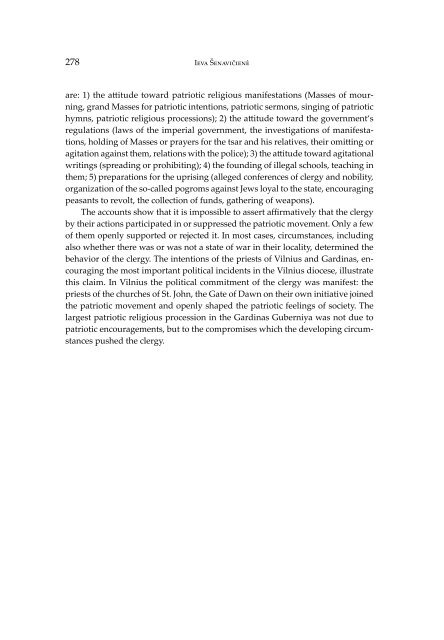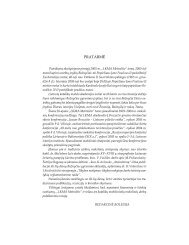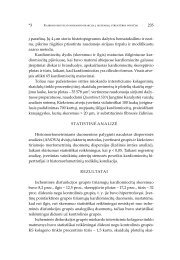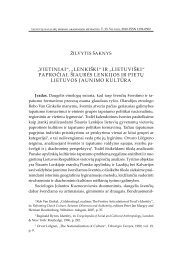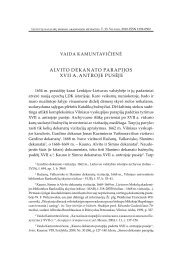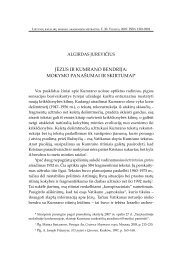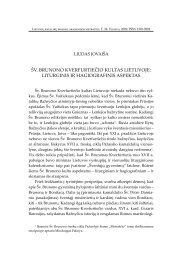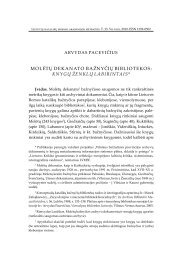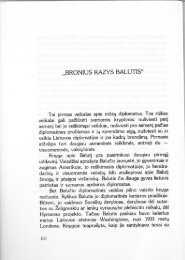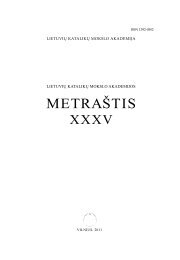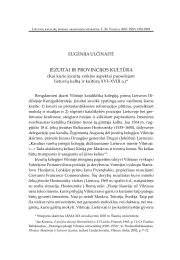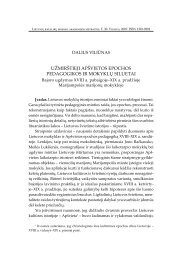Atsisiųsti straipsnį pdf - Lietuvių katalikų mokslo akademija
Atsisiųsti straipsnį pdf - Lietuvių katalikų mokslo akademija
Atsisiųsti straipsnį pdf - Lietuvių katalikų mokslo akademija
You also want an ePaper? Increase the reach of your titles
YUMPU automatically turns print PDFs into web optimized ePapers that Google loves.
278 Ieva Šenavičienė<br />
are: 1) the attitude toward patriotic religious manifestations (Masses of mourning,<br />
grand Masses for patriotic intentions, patriotic sermons, singing of patriotic<br />
hymns, patriotic religious processions); 2) the attitude toward the government‘s<br />
regulations (laws of the imperial government, the investigations of manifestations,<br />
holding of Masses or prayers for the tsar and his relatives, their omitting or<br />
agitation against them, relations with the police); 3) the attitude toward agitational<br />
writings (spreading or prohibiting); 4) the founding of illegal schools, teaching in<br />
them; 5) preparations for the uprising (alleged conferences of clergy and nobility,<br />
organization of the so-called pogroms against Jews loyal to the state, encouraging<br />
peasants to revolt, the collection of funds, gathering of weapons).<br />
The accounts show that it is impossible to assert affirmatively that the clergy<br />
by their actions participated in or suppressed the patriotic movement. Only a few<br />
of them openly supported or rejected it. In most cases, circumstances, including<br />
also whether there was or was not a state of war in their locality, determined the<br />
behavior of the clergy. The intentions of the priests of Vilnius and Gardinas, encouraging<br />
the most important political incidents in the Vilnius diocese, illustrate<br />
this claim. In Vilnius the political commitment of the clergy was manifest: the<br />
priests of the churches of St. John, the Gate of Dawn on their own initiative joined<br />
the patriotic movement and openly shaped the patriotic feelings of society. The<br />
largest patriotic religious procession in the Gardinas Guberniya was not due to<br />
patriotic encouragements, but to the compromises which the developing circumstances<br />
pushed the clergy.


